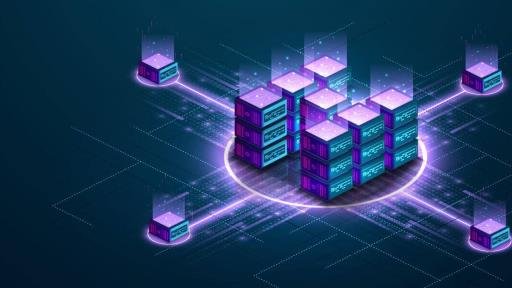Why blockchain technology is used : Transactions and Data Management

Blockchain technology is starting to impact a lot of different businesses. While it’s often associated with cryptocurrencies like Bitcoin, its applications extend far beyond the realm of digital money. At its core, blockchain offers a secure and transparent way to record and track data. This unique capability has the potential to revolutionize how we conduct transactions, manage information, and build trust in a digital world Why blockchain technology is used.
Understanding the Blockchain: A Distributed Ledger System
Imagine a giant, shared spreadsheet accessible to everyone on a network. This spreadsheet records every transaction that occurs, and all participants have a copy. This is essentially what a blockchain is: a distributed ledger system where data is stored across a network of computers rather than a single server.
Here’s what makes blockchain so powerful:
- Decentralization: There’s no central authority controlling the data. This eliminates the risk of a single point of failure and manipulation.
- Immutability: Once data is added to a block, it cannot be altered or deleted. This ensures the integrity and auditability of the record.
- Transparency: All participants on the network can see the entire history of transactions, promoting trust and accountability.
- Security: Cryptographic hashing ensures the authenticity and confidentiality of data.
Why use blockchain technology? Key Benefits
The combination of decentralization, immutability, transparency, and security makes blockchain a compelling solution for various use cases. Here are some key reasons why blockchain technology is being increasingly adopted:
- Enhanced Security: Blockchain’s distributed ledger system makes it extremely difficult for hackers to tamper with data. Traditional databases often have a single point of entry, making them vulnerable to cyberattacks. Blockchain, on the other hand, spreads the data across a network, making it virtually impossible for a single entity to gain control and alter information.
- Increased Trust and Transparency: In a world plagued by fraud and data breaches, blockchain offers a way to establish trust between parties who may not know or fully trust each other. The transparent and immutable nature of the blockchain ensures that all participants have access to the same information, eliminating the need for intermediaries and reducing the risk of errors or disputes.
- Streamlined Transactions: Blockchain can significantly streamline transactions by eliminating the need for third-party verification. For example, in a supply chain management system, blockchain can track the movement of goods from origin to destination, providing real-time visibility and reducing the need for manual paperwork. This can lead to faster transaction processing and lower operational costs.
- Improved Traceability: Blockchain excels at tracking the movement of assets, physical or digital. This makes it ideal for applications like provenance tracking, where it can be used to verify the origin and authenticity of goods such as diamonds or luxury products. This helps combat counterfeiting and ensures consumers get what they pay for.
- Empowering Individuals: Blockchain empowers individuals by giving them greater control over their data. Unlike traditional systems where data is typically owned and controlled by centralized entities, blockchain allows individuals to manage their own identities and control who has access to their information Why blockchain technology is used.
Real-World Applications of Blockchain Technology
Blockchain technology is still in its early stages of development, but its potential applications are vast. Here are a few examples of how blockchain is already being used across different industries:
- Finance: Blockchain is transforming the financial sector with the rise of cryptocurrencies and digital assets. It is also being explored for applications like cross-border payments, trade finance, and fractional ownership of assets.
- Supply Chain Management: Blockchain can track the movement of goods throughout the supply chain, providing greater transparency and efficiency. This can help identify bottlenecks, reduce fraud, and improve product recalls.
- Healthcare: Blockchain can be used to securely store and manage patient medical records, allowing patients to control access to and share their data with authorized providers. It can also be used for tracking pharmaceuticals and ensuring the authenticity of medications.
- Voting Systems: Blockchain offers a potential solution for creating more secure and transparent voting systems. With blockchain, votes can be recorded immutably and anonymously, reducing the risk of fraud and manipulation.
- Intellectual Property Management: Blockchain can be used to securely register and track intellectual property, such as copyrights and patents. This can help creators protect their ownership rights and ensure proper attribution.
The Future of Blockchain: Challenges and Opportunities
While blockchain technology holds immense promise, there are still challenges that need to be addressed:
- Scalability: Current blockchain implementations can struggle to handle large volumes of transactions. Scaling solutions are being developed, but it remains an ongoing challenge.
- Regulation: The regulatory landscape for blockchain is still evolving. Governments are grappling with how to regulate cryptocurrencies and other blockchain-based applications.
- Privacy Concerns: While blockchain offers transparency, there are also concerns about data privacy. Finding the right balance between transparency and privacy will be crucial for Why blockchain technology is used.



